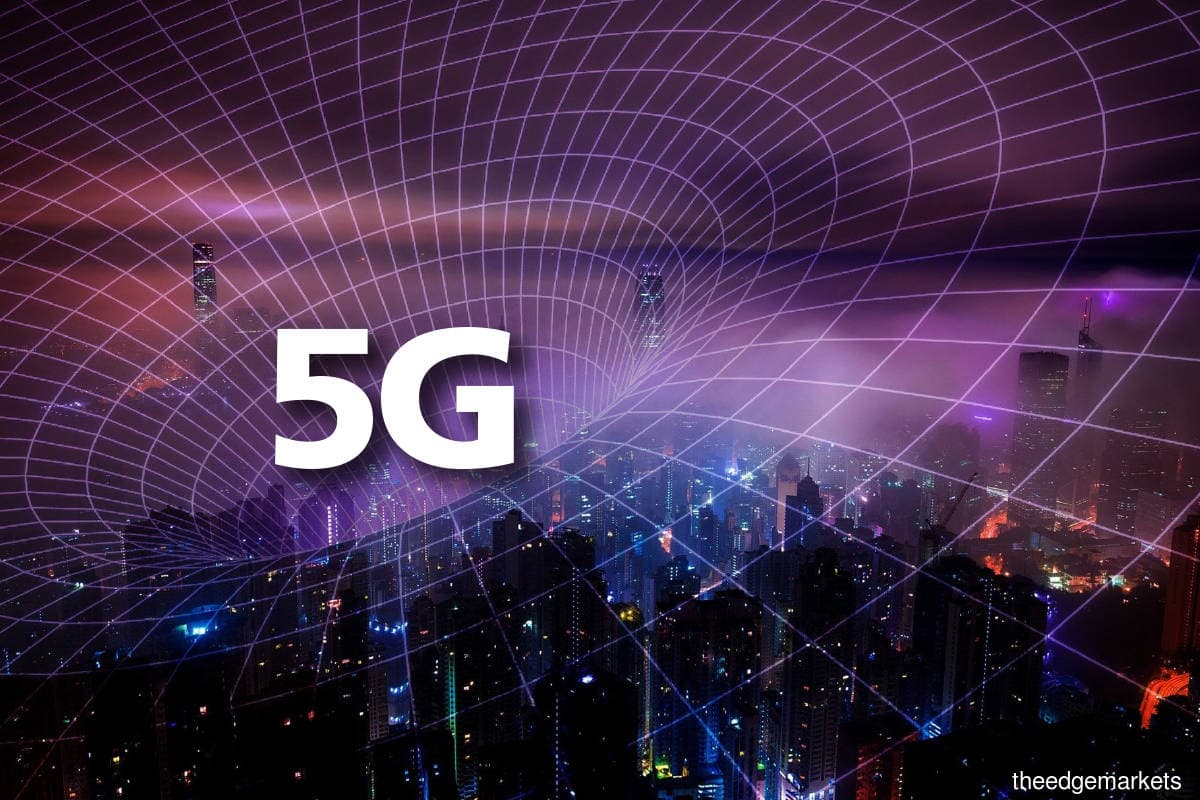
The consulting firm also refuted EMIR’s claims that DNB’s costs in rolling out and operating the SWN will increase substantially and will not lead to lower end-user prices.
KUALA LUMPUR (Dec 21): EMIR Research’s proposal for the 5G spectrum to be licensed to individual operators versus a single wholesale network (SWN) under Digital Nasional Bhd (DNB) can cost four to five times more, said a UK-based consulting firm.
Plum Consulting London LLP in a statement on Wednesday (Dec 21) said the think tank’s assumption that the SWN involves active radio access network (RAN) sharing, which makes it impossible for mobile operators to compete in service innovation at the network level, is inaccurate.
The consulting firm said DNB is constructing a single 5G network with exclusive use of the 5G spectrum, adding that it is a simplified form of the conventional use of the term Multi-Operator Core Networks (MOCN) as used by GSM Association (GSMA). GSMA is an industry organisation that represents the interests of mobile network operators worldwide.
“Under this simplified form, this spectrum is not shared. There will be one set of electronics, using only 5G technology to carry data between base stations and end-user devices and using only the DNB frequencies. There is no question of linking multiple RANs from different suppliers," it said.
Plum Consulting said EMIR “misunderstands” how the SWN works.
“Each mobile operator will continue to innovate in their core networks in terms of the services offered, whilst buying 5G access at prices well below the cost of 4G access.
“Granted there will be no innovation in the supply of 5G RAN infrastructure because there is no infrastructure competition in this component of the network.
“But this innovation is determined largely by the relevant standards bodies and then implemented by the global network vendors," it added.
The consulting firm also refuted EMIR’s claims that DNB’s costs in rolling out and operating the SWN will increase substantially and will not lead to lower end-user prices.
“In contrast, rational economic analysis indicates that EMIR’s proposal will lead to wholesale 5G costs [that are] four to five times higher than those of the SWN,” it said.
Plum Consulting further explained that rolling out six 5G networks — one for each mobile operator — would require six times as many 5G base stations.
“The unit cost per base station may be marginally lower under the six-network option. But we estimate that the overall ten-year cost of 5G network ownership under this option will be four to five times greater than under an SWN,” it said.
Plum Consulting estimated the end-user prices under the SWN are expected to be around 60% lower than with a deployment of six 5G networks.
The firm noted that DNB continues to estimate that just over 7,500 cell sites are required for 80% population coverage. DNB further estimates that around 2,600 additional sites will be needed to extend coverage to 90% of the population.
Plum Consulting observed that DNB is ahead of schedule in meeting its main rollout target of 80% population coverage by the end of 2024.
It said DNB has now reached 40% coverage a year after starting its network, deployment and has two more years to cover the remaining 40%.
Therefore, changing from the SWN to multiple 5G networks will lead to major delays in 5G rollout at a time when Malaysia needs 5G services for economic growth.
Plum Consulting also does not agree with EMIR's statement that forecast demand for 5G services to be sluggish and focus on high-density areas and specialist applications such as improvements in industrial processes (4IR).
“In contrast, experience from elsewhere in the world suggests that the main demand for 5G will come from growth in mobile data services and fixed wireless access services," it added.
Plum Consulting also said the Malaysian government is only expected to contribute a modest minority share of DNB’s required funds by 2025, unlike EMIR's claim.
“There are start-up costs of around RM800 million in the RM4 billion corporate costs. But once these start-up costs are excluded, DNB’s corporate costs are in line with other Malaysian mobile operators,” said the consulting firm.
Meanwhile, responding on EMIR’s take that DNB should be a neutral entity and focus in expanding passive network, Plum Consulting said as a licensed telecommunications operator, it will be subject to close scrutiny and extensive regulation by Malaysian Communications and Multimedia Commission (MCMC), an independent regulator established by the MCMC Act.
MCMC will monitor DNB’s progress against its plan and regulate the way it supplies wholesale 5G services to licensees in terms of both price and non-price supply conditions.
“The quality of DNB’s operations will be subject to minute-by-minute, transaction-by-transaction scrutiny by the mobile operators, each keen to ensure it secures the quality of service promised by DNB,” the commission said.
It added DNB is an organisation that, within a few years, will be funded through a mix of private bondholders, mobile operators and the government — with the government holding a modest minority interest. All of the stakeholders will have a keen interest in ensuring the financial health of their investments.
Prime Minister Datuk Seri Anwar Ibrahim on Dec 5 said that his administration would review Malaysia's plans for 5G rollout as there were concerns that it was not formulated transparently. DNB is a 5G SWN which is the sole entity mandated to roll out 5G nationwide. Existing telcos are prohibited from building their own 5G network and will need to lease access from the state-owned network.